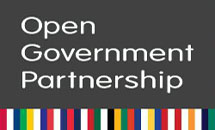By Deputy Minister Ayanda Dlodlo
There have been several significant developments in relation to sustainable development and development co-operation at a multilateral level this year. On July 5, the third International Conference on Financing for Development agreed on the Addis Ababa Action Agenda. And on September 25, United Nations member states at summit level adopted the 2030 Agenda for Sustainable Development.
The 2030 Agenda establishes a set of global priorities to help eradicate extreme poverty and shift all countries toward inclusive, sustainable development. Later this month the 21st Conference of the Parties of the UN Framework Convention on Climate Change (COP 21) will convene in Paris.
All these events are interrelated in that they seek sustainable solutions to the development challenges that confront all nations. Persistent high levels of chronic poverty, unemployment, marginalisation and inequality confront, and must be addressed by all nations.
The 2030 Agenda sets global priorities to help eradicate extreme poverty and move all countries toward inclusive and sustainable development. The Sustainable Development Goals entail 17 goals and 169 targets.
These goals emphasis eradicating poverty in all its forms; an end to hunger; achieving food security and promote sustainable agriculture. They also focus on providing inclusive and equitable quality education and to promote lifelong learning opportunities for all.
They emphasise the need for continued, inclusive and sustainable economic growth, characterised by full and productive employment and decent work for all; and the reduction of inequality within and among countries.
Realising these goals will require co-ordination and multiple stakeholder collaboration. Nations and governments will have to find new, innovative and unconventional ways of doing things.
Some initiatives that could be explored in support of the SDGs will be the promotion of Open Government as an aspect of South-South Co-operation as well as a program for support in Triangular Co-operation.
An important developments on the side-lines of UNGA in September was the Ministerial Level meeting of the Open Government Partnership (OGP) Steering Committee. This meeting resulted in the adoption of the Declaration on Open Government for the Implementation of the 2030 Agenda for Sustainable Development”.
The Declaration on SDGs, endorsed by 40 Open Government countries, affirms the pivotal role that open government as an enabler of development plays in promoting accountable government that deliver services to its citizens.
Therefore, countries from the South participating in the Open Government Partnership should prioritise learning from each other and also share technical expertise. Such sharing will ensure that participatory and informed decision making can be enhanced. An example of this will be in utilizing Open Data Portals for citizen engagement and policy decisions in environmental management.
The Group of 77 is made up of 134 developing countries, and is the largest group of member states within the United Nations. It is a vehicle for countries of the South to promote their collective economic interests and enhance their joint negotiating capacity on all major international economic issues within the United Nations, and promote South-South co-operation for development.
However, this should be underlined by respect for national sovereignty, national ownership and independence, equality, non-conditionality, non-interference in domestic matters and mutual benefit.
Current efforts such as the Brazil, Russia, India, China and South Africa (BRICS) Bank, Asia Infrastructure Investment Bank, the South-South Climate Co-operation Fund, the China-Africa Development Fund (with its support to the agricultural, steel sector and industrial development), as well as other global South initiatives (such as the New Partnership for Africa’s Development (NEPAD) and the Africa Union’s Agenda 2063) are initiatives of the South that South Africa is already a part of.
South Africa will intensify and extend its co-operation with Global South countries by ensuring that the private sector and civil society play their role in the implementation of the SDGs come January. This means there is a need to secure commitments from the private sector to take advantage of new opportunities brought about by new markets and technologies.
Such a public-private partnership to accelerate the implementation of the SDGs must focus on creating decent work and respect for labour rights, achieving sustainable economic activity, addressing poverty, gender and economic inequality and combating corruption.
Ayanda Dlodlo is the Deputy Minister of Public Service and Administration.





